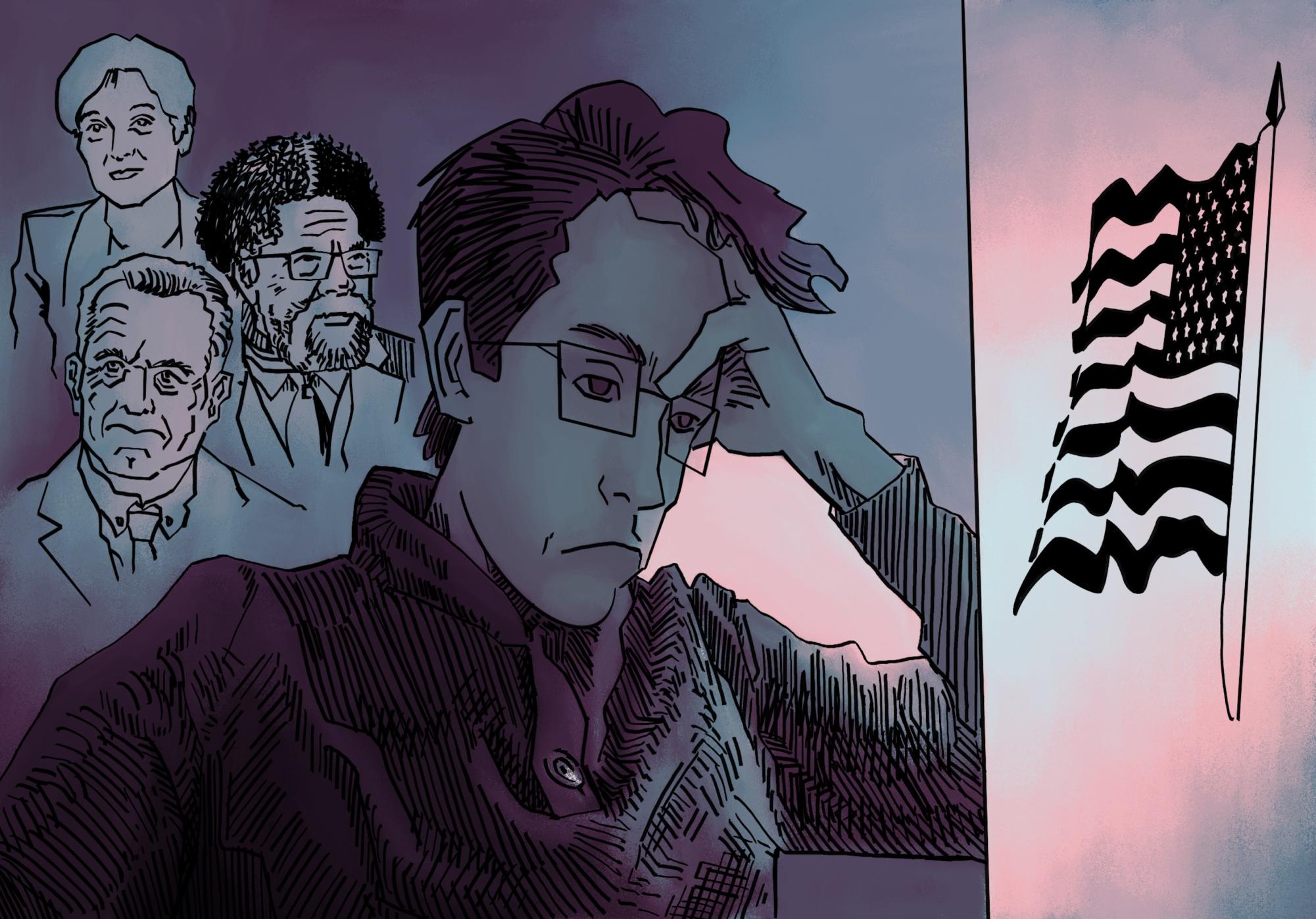Why NYU students are voting third party in the 2024 presidential election
Under the Arch
Why NYU students are voting third party in the 2024 presidential election
Students spoke with WSN about the issues that matter to them — and why those problems have led them to vote in defiance of the two-party system.
Liyana Illyas, Deputy News Editor | Oct. 28, 2024

As students count down to the 2024 presidential election, tensions on college campuses remain a point of critical contention. Amid the community’s stark political divide and institutional crackdowns on pro-Palestinian protests, students face significant moral dilemmas at the polls, struggling to support candidates who do not reflect their values and turn to third-party candidates to fill that role.
While most citizens are deciding between voting for Democratic candidate Kamala Harris and Republican candidate Donald Trump, many are exploring alternative options beyond the traditional bipartisan landscape of American politics. In 2024, 63% of U.S. adults agreed that a third party is needed in such a polarized climate, as the two leading parties fail to adequately represent the diverse American population. Third-party candidates offer voters, including NYU students, an opportunity to find representation of their political and moral beliefs.
CAS junior Hajar Ebid — whose primary concern in the upcoming election is both candidates’ positions on Israel’s ongoing war in Gaza — expressed her frustrations with the polarized nature of American politics, stating that it has “turned into theater on public display.”
“I don’t align with either of those parties, and that’s completely aside from their stance on Palestine — no American president has ever had an interest in establishing a Palestinian state or advocating for Palestinians as much as they advocate for Israel,” Ebid said in an interview with WSN. “They’ve never shown interest, so that’s an issue when it comes to [all presidential] elections for me personally, but this time it’s just exacerbated because of what’s been happening over the last year.”
The main third-party candidates for this upcoming election include Green Party nominee Jill Stein, independent Cornel West and Libertarian Party candidate Chase Oliver. Though independent candidate Robert F. Kennedy Jr., dropped out of the race to endorse Trump, he is still an option for third-party voters, with his name appearing on the ballot in 28 states. The other third-party candidates — with Stein as the “most prominent,” according to The Hill — will also appear on the ballots in some states.
Though they have never won in an American presidential election up to this point, third-party candidates have been influential in the small numbers of previous elections. In 2016, Green Party nominee Jill Stein and Libertarian Gary Johnson each received more votes in “blue-wall states” — states that have historically leaned Democrat in elections — than the margin by which Hillary Clinton lost the 2016 election.
The war in Gaza has become a major point of contention for many Arab and Muslim voters across the country, leading some to vote based on whether the candidates foresee an end to the escalating violence and suffering in the region. Ebid said she plans to vote for Stein, describing her stance on Palestine as “very supportive.”
CAS senior Ishi Gupta, an LGBTQ+ woman of color, said that “living under Trump was horrifying” and expressed her concerns about the possibility of another four years under his administration. Gupta feels she has “no choice but to vote third party” in this election, viewing it as a way to challenge and push for change in the rigid American political system.
“The longer we abide by the strict partisan system we have been told we must uphold, the longer we make excuses for why change cannot happen,” Gupta said. “We have a choice to either abide by the rules they have given us, or fight and say we will no longer allow genocide to happen in our name. And when it is put like that, I see that there was never any other option than to vote third party.”
Ebid also said that the recent hurricanes in Florida and North Carolina are another factor influencing her vote in the upcoming election. Hurricane Milton, which hit Florida just under two weeks after Hurricane Helene, forced millions to evacuate and killed at least 17 people. The storm’s aftermath, with damages estimated at around $50 billion, has left residents feeling unprepared due to delayed aid.
Affordability of health care, another key issue for U.S. voters, has dropped six percentage points since 2022, now standing at 55% according to a recent Gallup poll. About half of U.S. adults say it is difficult to afford health care costs, based on a Kaiser Family Foundation poll. Ebid said her decision to vote third party is largely driven by the government’s inadequate health care services.
For CAS sophomore Lauren Fakhoury, a key issue in this election is Harris’ immigration policy. She sees third-party candidates as a way to send a message to Democrats that “there are people who won’t ‘vote blue no matter who,’” and as a source of hope for breaking away from the “Democratic-Republican duopoly” in American politics.
“Third-party candidates offer a choice that is not the lesser of two evils,” Fakhoury said. “When each of the two major parties no longer believes their only opponent is the other, they’ll be able to get away with a lot less.”
Contact Liyana Illyas at [email protected].

Liyana Illyas is a sophomore from New Jersey studying journalism and political science with a minor in data science on the pre-law track. As a proud Sri...























































































































































